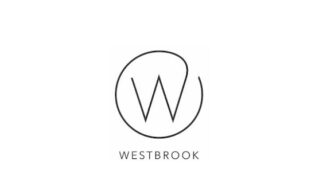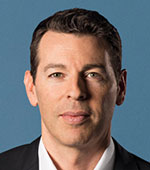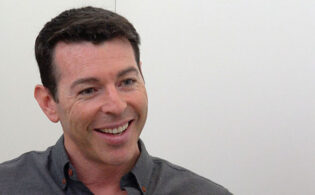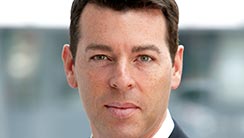Red Arrow Entertainment Group is the international production-and-distribution arm of ProSiebenSat.1 Media, one of Europe’s major media companies. Red Arrow has established itself as a leading independent producer and distributor of scripted dramas and comedies, unscripted and factual programming, formats and feature films, as well as digital content.
Red Arrow’s chairman and CEO, Jan Frouman, has been steadily expanding the company’s footprint, acquiring stakes in production companies and forging partnerships with producers. The strategy behind every deal is to add to the group’s output of product and increase the chances of finding a show that will cross borders and become successful in multiple territories. Even more important, though, Frouman is looking for like-minded producers with whom he can build long-term creative relationships.
Frouman has bolstered Red Arrow’s presence in the American and British markets, which he considers the company’s anchor territories. He has secured stakes in companies such as Fabrik Entertainment, Endor Productions, Left/Right, Half Yard and Kinetic Content. In February, Red Arrow and Smuggler created a new production company, Cove Pictures, which has a creative alliance with Eon Productions, whose principals are the producers of the James Bond franchise. And in line with parent company ProSiebenSat.1 Media’s focus on digital content, Red Arrow has invested in several digital companies, including Collective Digital Studio (now rebranded Studio71) and Ripple Entertainment.
With more than 800 titles, Red Arrow’s catalog includes the scripted series Bosch, Cleverman, Donny! and Lilyhammer. In the unscripted space, the company has had considerable success with social experiment formats, with Married at First Sight and Kiss Bang Love each selling in multiple territories and creating huge buzz on social media.
Frouman, who was recently appointed to ProSiebenSat.1’s executive board, talks to World Screen about his disciplined approach to investing in companies and his strategy for forming partnerships that provide access to talent.
WS: Tell us about your recent investment in Cove Pictures.
FROUMAN: This was one of those unique opportunities to expand our scripted profile with creative partners who have amazing access to talent. Cove is a production group based in the U.K. and the U.S., with Heather Rabbatts running the business. They have a creative alliance with Eon Productions, the producers of the James Bond franchise. Thus, Cove brings a new dimension of projects and talent into the group, and [their team is] exactly the kind of people we want to be in partnership with. It took quite a long time to get the deal done, in part because this was the first time Eon had made a move into television, so it had to be done right. We consider very carefully if the partnership is the right fit for all of us. And in this case, yes, we’re convinced and very excited about it.
WS: Television is becoming such a fertile creative ground; there is a lot of feature-film talent moving in.
FROUMAN: Yes. When we first started to talk with Cove, we went through some of the projects that they had cooking, and they told us: We’ve got this project with this many scripts and this talent potentially attached. Is that sufficient to take it out? And we were like: Are you kidding? Where do we sign? So yes, that’s exactly right. For talent, there is now a complete blurring of the lines between film and TV, and companies like Cove Pictures are capitalizing on that.
WS: That fits in with the scripted portfolio that you already have.
FROUMAN: Exactly. In the last few years, we’ve made good headway in scripted, whether it’s what we’ve done with Bosch, Odd Mom Out and Donny!, or what we’re currently doing with Cleverman on the distribution side. We’re probably producing more scripted than we ever expected to at this point. And yet, success feeds appetite—we want to have access to more. That’s where the balance comes in between being commercially disciplined and creatively brave: we are trying to find smart ways of building partnerships to access promising content. Frankly, there are certain shows—Odd Mom Out is one example—that I would love to own the distribution rights to for the benefit of the group as a whole. We don’t because in that case [the deal] didn’t come together in a way that allowed us to. But if we can find good partners who are going to create great shows where we can justify making a co-investment in owning the show, that’s the perfect combination.
WS: You have an equally ambitious non-scripted slate. Tell us about the investment in Dorsey Pictures that took place earlier this year.
FROUMAN: We recently made two non-scripted production company investments in the U.S. The first was Karga Seven Pictures and the second was Orion Entertainment, which has now rebranded as Dorsey Pictures.
We did these deals for the same reasons we did deals in the past: identifying a market that we like and finding amazingly talented, culturally compatible partners. They run their businesses well and have huge growth potential, and they are at a stage where they add a lot of value to us in terms of scale. In both cases we also felt that they were doing the deals for the right reasons: they wanted to be within a larger group to take their business to the next level. All of those are the underlying priorities that we have for Red Arrow when we look at a deal.
In the case of Dorsey Pictures, it is interesting that they have a unique and dominant position in the U.S. sportsman market: fishing, hunting and outdoor adventure. This is a really valuable market with a dedicated and loyal following. Dorsey has produced lots of branded entertainment focusing on that market, and this was our chance to go into that space. They are extremely smart and thoughtful about how they approach branded work. An ambition for us is to now go digital with them, creating some verticals around outdoor content. The total spending in that space in the U.S. is around $80 billion, I believe. It’s a massive yet fragmented market. But there are a handful of players who know what they’re doing, and Chris Dorsey and his team are among them.
WS: When setting up a partnership, aside from making the numbers work, there has to be a connection with the people you want to work with.
FROUMAN: Absolutely. Because once the financials of the deal are done, we have to want to talk to each other and collaborate. We need partners who are going to keep their passion, their excitement and their enthusiasm for the next couple of years. If that’s not there, a deal is not going to work out. So far, we’ve been smart about finding companies who not only want to monetize what they’ve achieved but are also determined to choose their partner based on the best possible fit. That’s the key sign for us. With our existing partners, we put a lot of time upfront into discussing how we can further develop our relationships. We are always aiming for partnerships that add value to both sides of the couple.
WS: Are you happy with the company’s current position in the U.S.? Are you looking for more growth?
FROUMAN: I’m very happy with our current position. I love the collection of companies that we’ve brought together, and I love the producers who are part of this group. We gathered the leaders of every company together in New York at the start of the year for a workshop, and there were so many great people in the room who enjoyed each other’s time and company. Of course, we always keep our eye open for the next thing. But it’s got to meet the criteria I described earlier, and it also has to match the priorities that ProSiebenSat.1 has as a group. We are not on a conveyor belt of acquisitions for their own sake. Previously, we had done lots of deals and then took some time to focus operationally and to integrate the companies properly. And this approach paid off. Now, we’ve had some great opportunities that we didn’t want to miss, with deals like Dorsey and Karga. The nice thing with these [companies] is that it has almost been a turnkey scenario: they run their businesses so well and they fit in so nicely with us.
WS: Are there other territories where you would like to build your presence, or is the portfolio good at this point?
FROUMAN: We’re really pleased with our portfolio; but we can imagine adding on to it, whether it’s via minority investment, majority investment, start-up…. Territorially, there were countries like the U.S. and U.K. that were obviously key for us. I’m always open to doing something in another big market where we’re not represented, but it needs to make sense. If it’s just a flag-in-the-ground producer position where it’s tough to make the business really work, where the formats coming out of that territory don’t travel that well, then it’s not worth it. We run our business pretty lean and we want to keep it that way. Of course, there are some big markets where we’re not represented. But we’re being very patient at the moment.
WS: Tell us about rebranding
Collective Digital Studio as Studio71.
FROUMAN: The rebranding is really about the fact that ProSiebenSat.1 took a controlling stake in what was Collective Digital Studio in the U.S. We already had Studio71 in Germany. Then we combined the operations organizationally, structurally, financially, and thus it made sense to have a single brand.
WS: The potential of short-form and digital content is endless, isn’t it?
FROUMAN: Definitely. That’s why Red Arrow started a company called Ripple Entertainment in L.A. last year, where we partnered with two senior executives in the digital space. With Ripple, we are building digital verticals on the back of our catalog, plus bringing in third parties. Ripple is working very closely with Studio71, and we’re trying to push that ball down the field, but in a thoughtful, disciplined way. ProSiebenSat.1 is very forward-thinking in the digital space and whatever we do at Red Arrow needs to fit into the group’s overall portfolio.
WS: Can you tell us about plans for branded entertainment?
FROUMAN: Not yet, but hopefully very soon. As I mentioned earlier, our company Dorsey Pictures is already doing a lot in that area and their work with brands such as Ford is truly impressive. We want to find more opportunities in that field and are also aiming for synergies with ProSiebenSat.1. SevenOne AdFactory is part of our ad-sales house in Germany and they are doing great branded entertainment work. Dorsey and the AdFactory team are already talking to each other to see if there is a way to collaborate. We aim to find every group contact point to extend the value of our businesses. I fully expect to have some great branded announcements coming up soon.




